The first 6 years of a child’s life is the time when all the foundational skills are being developed. These are carried into the formal schooling years.
Read on to find out what the most important developmental skills for preschoolers are and how parents and teachers can build them through play.
They are based on my experience in the classroom as well as the great insights in the book “Language and School Readiness“, written by Martie Pieterse.
There’s also a handy printable of these skills at the end of this post.
P.S. For simple, play-based activities that build these foundational skills, try the Learning Through Play Activity Pack.
1. Visual Perception
Visual perception is the ability to interpret what the brain is seeing. This is a very important skill for learning to read, write and do mathematics and should be developed in early childhood.
Visual perception includes visual discrimination, visual memory, perception of shapes, and visual analysis and synthesis.
Try these kinds of activities:
- Show your child 5 items, then cover them and ask your child to name the items (develops visual memory).
- Play a picture memory game or Snap card game.
- Spot the differences in two similar pictures (develops visual discrimination).
- Match, sort and categorize shapes, blocks, beads, etc.
- Make a picture using basic shape cut-outs.
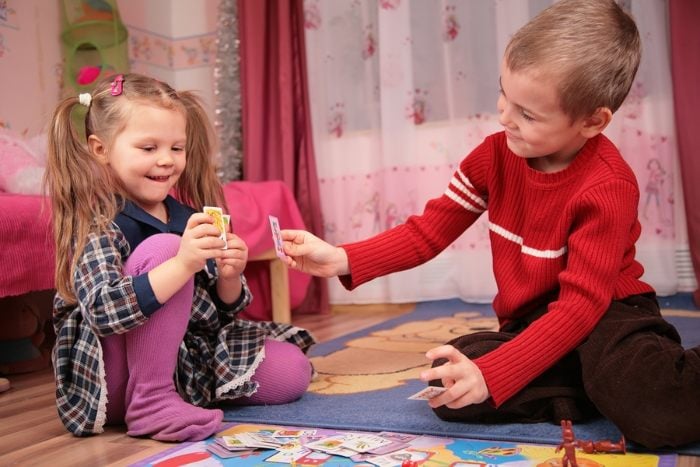
2. Auditory Perception
Auditory perception is the ability to interpret and attach meaning to sound. It is important for reading, spelling and language development.
Auditory perception includes auditory discrimination, auditory memory, auditory foreground-background perception, and auditory analysis and synthesis.
Try these kinds of activities, where the focus is on listening to specific sounds in words:
- Learn lots of rhymes, poems and songs.
- Play games with rhyming words e.g. Do these two words rhyme? Which word doesn’t fit this list? (develops auditory discrimination).
- Play “I went to the zoo and I saw a ____”, each time adding a word to the list (develops auditory memory).
- Play games with sounds in words e.g. What sound do you hear at the beginning of dog? or “I Spy something that starts with a fff” (develops auditory awareness).
3. Listening Skills
This includes auditory perception, but also the ability to understand and follow instructions. Learning to listen is a very important skill, not just for learning to read, but for coping with all aspects of schooling.
Play games that focus on listening attentively for information:
- Play the Broken Telephone game.
- Say a string of commands and ask your child to follow them all in order.
- Clap a sequence or make a series of sounds on a drum and ask your child to repeat it.
- Play a game where your child listens to you say a list of words and must say which doesn’t fit (e.g. a list of animals with a fruit in the middle).
4. Speaking Skills
Language involves listening and speaking. Children must develop their speaking skills in order to learn to read and write, understand the world, convey information, socialize, express their feelings and play.
Well-developed auditory skills are a prerequisite for developing good speaking skills.
These activities develop speaking and language skills:
- Talk to your child often to develop their speaking skills (grammar, vocab, etc.)
- Discuss your child’s day at school, events, friends, etc.
- Chat about interesting topics often (e.g. what sharks eat or how trees grow) and introduce a variety of new vocabulary.
- Ask your child many questions to elicit personal opinions.
5. Gross Motor Skills
Children develop their large muscles before their small muscles. The first few years of a child’s life should be packed with opportunities to develop these gross motor skills.
Examples of gross motor activities are:
- Lots and lots of outdoor free play (especially on climbing frames).
- Obstacle courses in the garden.
- Playing catching and chasing games.
- Action rhymes and songs.
- Games involving hopping, skipping or jumping.
6. Fine Motor Skills
Fine motor activities build the coordination between the eyes and the small muscles in the fingers and hands. This is crucial for learning to write.
When preschoolers have well-developed fine motor skills they are able to cut, hold a pencil between the thumb, index and middle finger, dress, experiment with writing, and perform other important skills.
Offer these kinds of activities:
- Art activities with varied tools and mediums (paint, chalk, wax crayons, big brushes, sponges, etc.)
- Threading and lacing
- Beading
- Cutting, pasting and tearing
- Finger plays
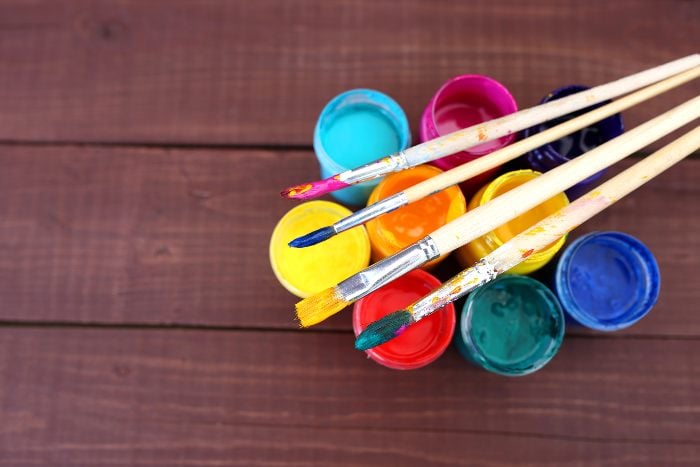
7. Creativity and Thinking Skills
Creativity is a vital skill that must be stimulated over time. It is not just about art, but also about thinking and problem solving, skills that are necessary throughout life.
A few examples of activities that encourage thinking are:
- Ask multiple questions during storytime to develop higher-order thinking skills, such as questions about predicting the outcome, how a character can solve a problem, what the action will result in (cause and effect), etc.
- Play games that require solving problems or riddles.
- Build puzzles.
8. Emergent Reading Skills
Before a child learns to read, they must learn important pre-reading skills such as rhyming, visual memory, print awareness, listening comprehension, letter knowledge and auditory perception (including phonological awareness).
These ideas will develop early reading skills:
- Word awareness games (e.g. How many words can you hear in this sentence?)
- Rhyming games (e.g. I spy something that rhymes with bat).
- Syllable games (e.g. hop to the beats – syllables – in your name).
- Sound games (e.g. it starts with “b” and ends with “each”).
- All the activities listed in the visual and auditory perception sections (above).
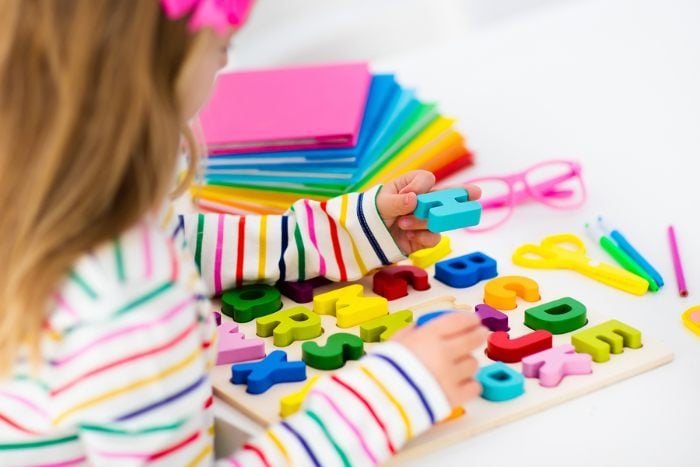
9. Emergent Mathematics Skills
Children begin developing pre-mathematical skills early on. These are skills such as an emerging number sense, and a concept of measurement, space and shape.
Offer these types of activities:
- Play games such as Snakes and Ladders or other board games.
- Recite counting rhymes and songs (also those that go backwards).
- Play with containers in the sandpit and bath or water trough to develop number concepts.
- Play games such as hopping through hula hoops, climbing up ladders, etc., to develop a sense of increasing/decreasing numbers.
- Play with lego and blocks (often) to develop a number concept and vocabulary (e.g. more, less, enough, equal, another one).
10. Emergent Writing Skills
Emergent writing involves developing base skills such as visual perception, pencil grip, fine motor skills, patterning skills, and others.
These activities will help develop children’s writing skills:
- Allow opportunities for creative art daily (holding different utensils – brushes, pencils, crayons, etc., to develop finger strength).
- Play finger rhymes (for finger control and strength).
- Play with playdough (for finger control and strength).
- Play with foam, rubber or wooden letters (letter recognition).
- Make patterns in sand or large paper (e.g zig-zags, waves, lines, etc. – to mimic the strokes found in letters).
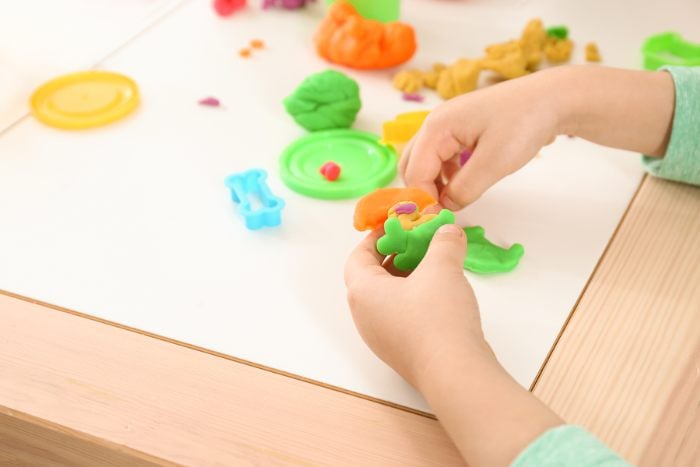
Many of the above activities will work on multiple skills simultaneously. This means these activities are great for your child’s holistic development.
I hope you’ll enjoy trying these activities with your kids!
Sources:
Hendrick, H. 1990. Total Learning: Developmental Curriculum for the Young Child. Third Edition. Macmillan Publishing Company: New York.
The 10 Most Important Foundational Skills All Preschoolers Need
Notes
The first 6 years of a child’s life is the time when all the foundational skills are being developed. These are carried into the formal schooling years.
Read on to find out what the most important developmental skills for preschoolers are and how parents and teachers can build them through play.
They are based on my experience in the classroom as well as the great insights in the book Language and School Readiness, written by Martie Pieterse.
1. Visual Perception
Visual perception is the ability to interpret what the brain is seeing. This is a very important skill for learning to read, write and do mathematics and should be developed in early childhood.
Visual perception includes visual discrimination, visual memory, perception of shapes, and visual analysis and synthesis.
Try these kinds of activities:
- Show your child 5 items, then cover them and ask your child to name the items (develops visual memory).
- Play a picture memory game or Snap card game.
- Spot the differences in two similar pictures (develops visual discrimination).
- Match, sort and categorize shapes, blocks, beads, etc.
- Make a picture using basic shape cut-outs.
2. Auditory Perception
Auditory perception is the ability to interpret and attach meaning to sound. It is important for reading, spelling and language development.
Auditory perception includes auditory discrimination, auditory memory, auditory foreground-background perception, and auditory analysis and synthesis.
Try these kinds of activities, where the focus is on listening to specific sounds in words:
- Learn lots of rhymes, poems and songs.
- Play games with rhyming words e.g. Do these two words rhyme? Which word doesn’t fit this list? (develops auditory discrimination).
- Play “I went to the zoo and I saw a ____”, each time adding a word to the list (develops auditory memory).
- Play games with sounds in words e.g. What sound do you hear at the beginning of dog? or “I Spy something that starts with a fff” (develops auditory awareness).
3. Listening Skills
This includes auditory perception, but also the ability to understand and follow instructions. Learning to listen is a very important skill, not just for learning to read, but for coping with all aspects of schooling.
Play games that focus on listening attentively for information:
- Play the Broken Telephone game.
- Say a string of commands and ask your child to follow them all in order.
- Clap a sequence or make a series of sounds on a drum and ask your child to repeat it.
- Play a game where your child listens to you say a list of words and must say which doesn’t fit (e.g. a list of animals with a fruit in the middle).
4. Speaking Skills
Language involves listening and speaking. Children must develop their speaking skills in order to learn to read and write, understand the world, convey information, socialize, express their feelings and play.
Well-developed auditory skills are a prerequisite for developing good speaking skills.
These activities develop speaking and language skills:
- Talk to your child often to develop their speaking skills (grammar, vocab, etc.).
- Discuss your child's day at school, events, friends, etc.
- Chat about interesting topics often (e.g. what sharks eat or how trees grow) and introduce a variety of new vocabulary.
- Ask your child many questions to elicit personal opinions.
5. Gross Motor Skills
Children develop their large muscles before their small muscles. The first few years of a child's life should be packed with opportunities to develop these gross motor skills.
Examples of gross motor activities are:
- Lots and lots of outdoor free play (especially on climbing frames).
- Obstacle courses in the garden.
- Playing catching and chasing games.
- Action rhymes and songs.
- Games involving hopping, skipping or jumping.
6. Fine Motor Skills
Fine motor activities build the coordination between the eyes and the small muscles in the fingers and hands. This is crucial for learning to write.
When preschoolers have well-developed fine motor skills they are able to cut, hold a pencil between the thumb, index and middle finger, dress, experiment with writing, and perform other important skills.
Offer these kinds of activities:
- Art activities with varied tools and mediums (paint, chalk, wax crayons, big brushes, sponges, etc.).
- Threading and lacing.
- Beading.
- Cutting, pasting and tearing.
- Finger plays.
7. Creativity and Thinking Skills
Creativity is a vital skill that must be stimulated over time. It is not just about art, but also about thinking and problem solving, skills that are necessary throughout life.
A few examples of activities that encourage thinking are:
- Ask multiple questions during storytime to develop higher-order thinking skills, such as questions about predicting the outcome, how a character can solve a problem, what the action will result in (cause and effect), etc.
- Play games that require solving problems or riddles.
- Build puzzles.
8. Emergent Reading Skills
Before a child learns to read, they must learn important pre-reading skills such as rhyming, visual memory, print awareness, listening comprehension, letter knowledge and auditory perception (including phonological awareness).
These ideas will develop early reading skills:
- Word awareness games (e.g. How many words can you hear in this sentence?).
- Rhyming games (e.g. I spy something that rhymes with bat).
- Syllable games (e.g. hop to the beats – syllables – in your name).
- Sound games (e.g. it starts with “b” and ends with “each”).
- All the activities listed in the visual and auditory perception sections (above).
9. Emergent Mathematics Skills
Children begin developing pre-mathematical skills early on. These are skills such as an emerging number sense, and a concept of measurement, space and shape.
Offer these types of activities:
- Play games such as Snakes and Ladders or other board games.
- Recite counting rhymes and songs (also those that go backwards).
- Play with containers in the sandpit and bath or water trough to develop number concepts.
- Play games such as hopping through hula hoops, climbing up ladders, etc., to develop a sense of increasing/decreasing numbers.
- Play with Lego and blocks (often) to develop a number concept and vocabulary (e.g. more, less, enough, equal, another one).
10. Emergent Writing Skills
Emergent writing involves developing base skills such as visual perception, pencil grip, fine motor skills, patterning skills, and others.
These activities will help develop children's writing skills:
- Allow opportunities for creative art daily (holding different utensils – brushes, pencils, crayons, etc., to develop finger strength).
- Play finger rhymes (for finger control and strength).
- Play with playdough (for finger control and strength).
- Play with foam, rubber or wooden letters (letter recognition).
- Make patterns in sand or large paper (e.g. zig-zags, waves, lines, etc. – to mimic the strokes found in letters).
Many of the above activities will work on multiple skills simultaneously. This means these activities are great for your child's holistic development.
Source: Hendrick, H. 1990. Total Learning: Developmental Curriculum for the Young Child. Third Edition. Macmillan Publishing Company: New York.
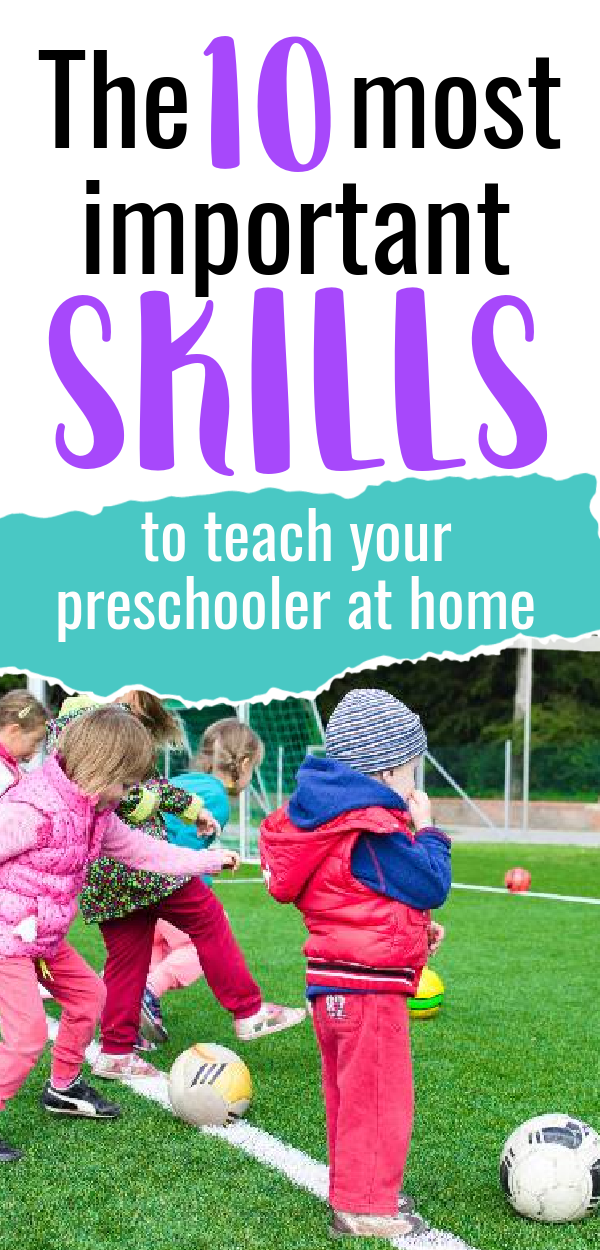
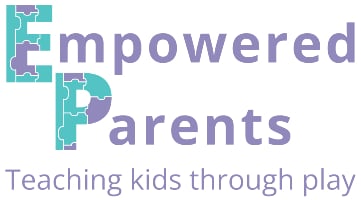
Saroj
Wednesday 1st of July 2020
Hi Tanja
Very useful information. Very good tips for parents as I will pass this information to my daughter.
Julie
Saturday 23rd of May 2020
Wow, thank you such a lot of useful information really helped in my planning .
Brenda
Friday 26th of June 2020
Thank you very informative
Tanja Mcilroy
Monday 25th of May 2020
I'm glad to hear this was helpful Julie!
Wageha Soltan
Friday 15th of May 2020
I like this website as a teacher, thanks was really useful.
Tanja Mcilroy
Monday 18th of May 2020
Thanks for your comment Wageha!
Lizette Theron
Wednesday 22nd of April 2020
Hi Tanja I am a Grade R teacher. I am very much interested in your products that you have. Can you please guide me as a teacher. I have received the free activity pack and it is amazing.
Tanja Mcilroy
Thursday 23rd of April 2020
Hi Lizette, thanks for your comment. I will be sending an email at least once a week with lots of tips for parents and teachers too. Glad you enjoyed the free guide!